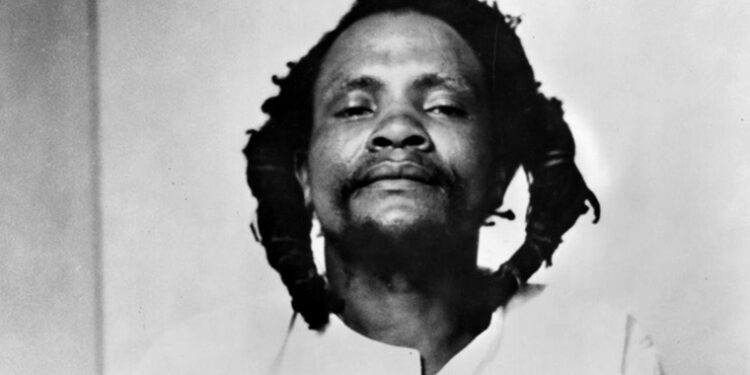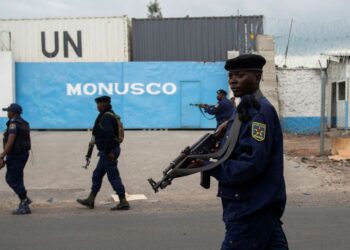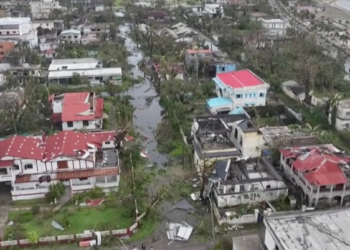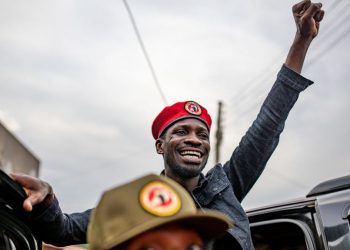King Charles III held a private meeting on Wednesday, November 1, 2023, with the family of the executed leader of the Kenyan rebellion against British colonial rule.
The family of Dedan Kimathi, who was hanged by the British administration, and relatives of other well-known Kenyan freedom fighters didn’t immediately comment.
In the past, they have called for an apology and compensation from Britain, along with any information on the whereabouts of Kimathi’s body.
The British High Commission said only that the meeting was an “opportunity for the king to hear firsthand about the violence committed against Kenyans during their struggle for independence.” Attendees included the chair of the Mau Mau War Veterans Association.
The issue remains painful for many Kenyans, and police dispersed a couple dozen people protesting at the foot of a monument to Kimathi in Kenya’s capital, Nairobi. “All the land under British rule should be given back to the Kenyan people,” said Juliet Wanjira with the Mathare Social Justice Centre, calling for the British military training mission in Kenya to leave.
Kenya is celebrating the 60th anniversary of its independence this year. It has had a close but at times challenging relationship with Britain after the prolonged struggle against colonial rule, sometimes known as the Mau Mau Rebellion, in which thousands of Kenyans were killed.
Colonial authorities executed and detained many without trial as they tried to put down the insurrection, and thousands of Kenyans said they were beaten and sexually assaulted by agents of the administration.
Who was Dedan Kimathi?
Dedan Kimathi was a rebel field marshal fighting the British colonial authorities in Kenya during the Mau Mau rebellion of the 1950s. The violent rebellion remains a controversial part of Kenyan and British history. The rebellion instigated the creation of a system of detention camps, which saw the incarceration of some 80,000 Kikuyu people in Kenya.
Kimathi was born in Kanyinya, in the Nyeri District of Central Province. In 1941, he enlisted as a sweeper with the King’s African Rifles (KAR), only to desert the role soon after learning of the terrible conditions African soldiers were subjected to.
After a short stint working as an “untrained teacher,” between 1947 and 1949, Kimathi joined the Kenya African Union (KAU), the first national political party in Kenya, and served as a secretary for the Ol Kalou branch. Working in this branch, Kimathi became involved with the Mahimu committee, which played a central role in transforming and spreading the practice of oathing within the Mau Mau movement.
Kimathi rose to prominence within the movement in the early 1950s, first acting as an oath administrator, a method of initiation, and a way of ensuring loyalty within the Mau Mau movement. He quickly became a leader of the Mau Mau fighters who migrated into the forests to fight the British forces after the declaration of the State of Emergency in late 1952.
After a relentless campaign to capture Kimathi and his insurgents, the British colonial government’s tribal police captured him alone early on October 21st, 1956, in the emergency trenches dug to separate the “native reserve” and the Nyandarua forest.
The nature of Kimathi’s arrest is still contested. Yet the recorded version of events is that Dedan Kimathi was shot and captured by tribal police constable Ndirangu Mau, who claimed that he shot Kimathi in the leg as he attempted to re-enter the forest and evade capture.
Kimathi’s capture was a momentous victory for the British, who saw him as the focal point of the uprising, without which the forest fighters could not function.
After a laborious and intricate trial, on November 19, 1956, Chief Justice Kenneth O’Connor found Kimathi guilty of unlawful possession of a firearm and ammunition, actions made illegal by the Emergency Regulations put in place by the British Government in an attempt to quell the violence of the rebellion.
On November 19, 1956, at the Supreme Court of Kenya in Nyeri, the colonial government sentenced Kimathi to death. In the early hours of February 18, 1957, Kimathi was hanged to death at Kamiti prison and, according to documentation, buried within its grounds.
The exact location of his grave has never been found.
The British Government’s decision to execute Kimathi for such a minor charge was fueled by their desperation to eradicate the Mau Mau rebellion. Since Kimathi was such a fervent, famous anti-colonialist, his death could stand as a warning. To this day, Kimathi remains an icon of the Mau Mau rebellion.
ـــــــــــــــــــــــ
Source:
– Black Past: DEDAN KIMATHI (1920-1957)
– Africa News: Family of Kenyan rebel leader hanged by the British meet with King Charles III
– Deutsche Welle: Dedan Kimathi: Kenya’s heroic freedom fighter



























































